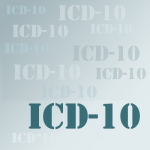WEDI: ICD-10 Coding Guideline Negates Some Claim Audit Policies
An ICD-10 coding guideline that allows diagnostic statements rather than clinical documentation to determine codes contradicts auditing policies for quality programs, WEDI argued.

- A new ICD-10 coding guideline conflicts with reporting and auditing policies for several quality programs as well as medical necessity rules and other healthcare regulations, stated the Workgroup for Electronic Data Interchange (WEDI) in a recent brief.

While some quality programs and healthcare regulations require codes to be based on clinical documentation, the new guideline indicates that diagnostic statements can determine codes.
The Center for Disease Control and Prevention’s (CDC) National Center for Health Statistics (NCHS) recently updated official ICD-10 coding guidelines to reflect the end of coding flexibilities on Oct. 1, but the organization also added other guidelines for the 2017 fiscal year.
As part of the update, NCHS included a new guideline titled “Code Assignment and Clinical Criteria.” The guideline reads as follows:
“The assignment of a diagnosis code is based on the provider’s diagnostic statement that the condition exists. The provider’s statement that the patient has a particular condition is sufficient. Code assignment is not based on clinical criteria used by the provider to establish the diagnosis.”
WEDI stated that the guideline was intended to “let coders know that if they did not have the ability to query the provider, the provider’s written statement could be used for coding purposes.” However, the organization added that the new process does not match official guidelines for many auditing programs, which aim to improve clinical documentation.
“This has caused some concern in the industry, mainly due to reporting and auditing of the many quality programs currently in place and being planned for in the future,” the brief stated. “While this guideline puts in writing what is an age-old process, current regulations, medical necessity requirements and audit programs negate this type of coding.”
The new ICD-10 coding guideline contradicts official guidance in the Office of Inspector General (OIG) work plan for the 2016 fiscal year, WEDI contended. According to the OIG work plan, medical record documentation must match the diagnoses submitted to CMS for risk-score determinations. Matching clinical documentation and diagnoses is also a consideration when determining whether the diagnosis submitted complies with federal rules.
OIG explained that prior audits have showed that diagnoses submitted to CMS by Medicare Advantage organizations were not always supported by medical record documentation. As a result, Medicare Advantage organizations received improper payments from CMS because risk-scores were inaccurate.
WEDI also stated that the ICD-10 coding guideline contradicts a recent FAQ on the CMS website which aims to increase ICD-10 coding specificity. On Oct. 1, CMS eliminated ICD-10 coding flexibilities that prohibited contractors and auditors from denying claims for ICD-10 coding specificity as long as there was no evidence of healthcare fraud.
Prior to Oct. 1, providers could submit a valid code from the correct diagnostic family, or ICD-10 three-character category, even if a more specific code could apply. Providers could also submit unspecified codes for most claims.
However, CMS now requires providers “to code to accurately reflect the clinical documentation in as much specificity as possible, as per the required coding guidelines.” The FAQ indicates that diagnosis should reflect clinical documentation, WEDI stated.
In light of the new ICD-10 coding guideline, WEDI advised healthcare organization to review previous cases in which the provider’s diagnosis is not supported by clinical documentation.
“Organizations should look at how they previously handled situations where there appears to be a disconnect between the physician’s diagnosis versus other clinical documentation,” suggested WEDI. “Where possible, querying the physician is advisable, both to validate the statement and to confirm why the documentation differs.”
With the end of ICD-10 coding flexibilities, CMS also recommended that providers familiarize themselves with new 2016 and 2017 codes and code title sets to prevent claim denials and audits. Providers should avoid using unspecified codes and check that coding aligns with clinical documentation, the federal agency added.
Some providers, however, may already be prepared for updated ICD-10 coding guidelines. CMS stated in the FAQ section that many payers did not implement coding flexibilities, so some providers may already be documenting and submitting claims according to new CMS specificity requirements.
WEDI also reported in May that ICD-10 implementation went smoother than expected for most providers because launch date delays allowed organizations to develop resources for the new system. Providers were able to improve ICD-10 testing and educate their providers and coders on the system.
ICD-10 training and education was key to the smooth transition and similar preparation will help providers succeed with updated codes and guidelines, stated Lorena Chicoye, MD, Baptist Health South Florida’s Corporate Medical Director.
“There is going to be a large educational opportunity for the CDIs [clinical documentation improvement specialists] to get to those physicians who have been a little more difficult to reach and explain to them that those unspecified codes are no longer going to be paid,” she told RevCycleIntelligence.com. “With that said, it’s actually gives us a little more support in terms of getting the physicians to write in the medical record with the highest specificity as possible.”
Dig Deeper:
• How to Manage ICD-10 Implementation Updates, Maximize Revenue
• Key Ways to Improve Claims Management and Reimbursement in the Healthcare Revenue Cycle
